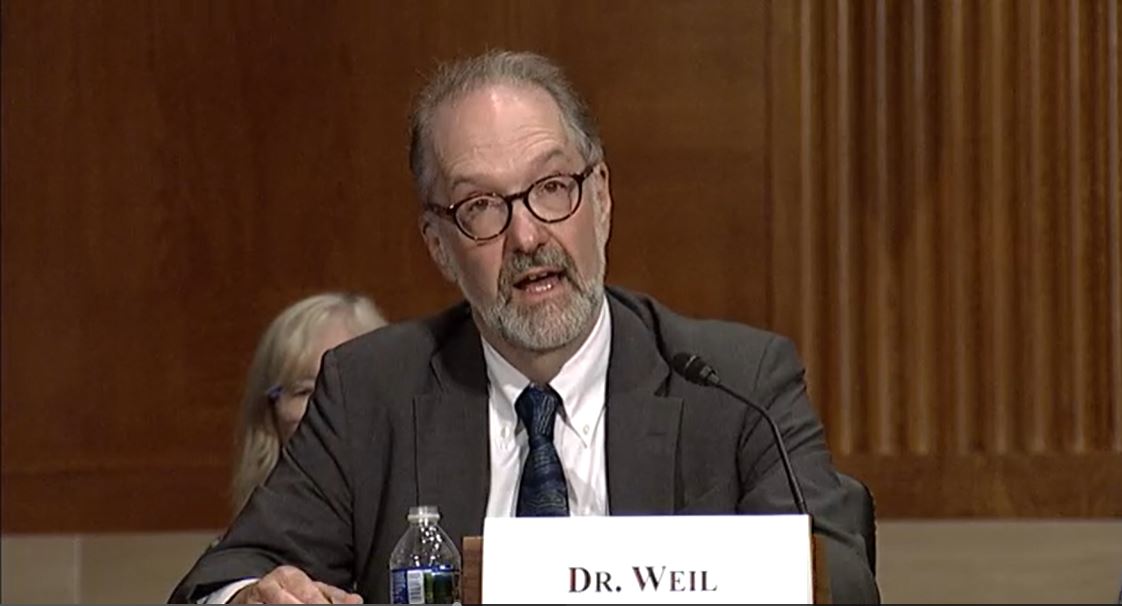Posts tagged Secondary boycotts

Op-Ed: Follow Trump 45 Labor Policy, Not the Teamsters Union
November 21, 2024 // By pushing Rep. Chavez-DeRemer for secretary of labor, O’Brien is essentially asking the winner of the 2024 presidential election to concede to the loser on one of the most important pieces of domestic legislation after the winner has already won in exchange for nothing. Rather than taking labor policy advice from a union boss, President Trump would do much better to follow the example he himself set in his previous term.
The Accidental Success of the NLRA: How a Law about Unions Achieved Its Goals by Giving Us Fewer Unions
August 30, 2024 // The Wagner Act was passed to promote labor peace. It aimed to keep commerce flowing by promoting collective bargaining, and thus unionism. Taft-Hartley reversed one part of that policy: it helped make unionism, and thus collective bargaining, less common. But by doing so, it finally achieved labor law’s original goal. The labor market today is more peaceful than at any time in the last century. And that peace owes in large part to the relative scarcity of unions. That lesson is worth keeping in mind in contemporary debates. Today, voices on both sides of the aisle laud the benefits of unionism. They speak of unions as vehicles of workplace democracy—a productive way for workers to express their collective discontent. But unions have not always funneled discontent through peaceful channels: when given too much power, they have disrupted the avenues of commerce.
Opinion: PRO Act Just Gives Unions More Power
April 24, 2024 // Big Labor bosses who desire more resources and power (often in order to steal them or direct them to radical political agendas) hope the PRO Act will complete an 80-year campaign to make America more like Europe, with the strikes, economic sclerosis, and socialist planning for which that continent is known. With the PRO Act having powerful allies in the White House and Congress, it’s time for opponents of Big Labor to take note.

The FTC’s Indefensible Position on Collective Bargaining
April 19, 2023 // In remarks last week at the University of Utah School of Law, FTC Commissioner Alvaro Bedoya argued that independent contractors should be allowed to bargain collectively. He acknowledged that courts have always treated collective bargaining by contractors as illegal under federal antitrust law. But he claimed that these courts have made a mistake: in fact, Congress never meant to stop small contractors, like truckers or plumbers, from forming a union and bargaining together. Bedoya’s interpretation would upset a century of careful balancing between antitrust and labor policy. It would also expose the contractors themselves to serious risks of abuse. And it would undermine well-established rules against collusion, price fixing, and other restraints on trade. To see why Bedoya is so wrong, you have to understand labor law and antitrust law’s tangled history. Let’s start with section 1 of the Sherman Antitrust Act. Adopted in 1890, section 1 banned all contracts and conspiracies in restraint of trade. It did not, however, define trade restraints. Instead, it incorporated common-law standards. Under the common law, unions were treated no differently from any other combination of buyers or sellers. If they conspired to fix labor prices, they violated the law. And collective bargaining could be seen as one form of price fixing. As a result, the law sometimes treated unions as, essentially, labor cartels.
Contesting the PRO Act’s Coercive Vision
April 1, 2022 // The Employee Rights Act presents a firm contrast with the vision outlined in the PRO Act and supported by Big Labor and its allies in Congress and the Biden administration. Where the PRO Act increases union financial coercion of workers to aid its political allies, the ERA reduces it. Where the PRO Act infringes on workers’ informed consent on union formation, the ERA protects it. Where the PRO Act limits worker privacy, the ERA expands it. Where the PRO Act fails to provide financial transparency and scrutiny in union operations, the ERA provides it. And where the PRO Act endorses Big Labor’s every-job-a-factory-job vision, the ERA promotes modern understandings of compensation and flexibility in working arrangements.

How This Labor Department Nominee Threatens 59 Million Workers
January 13, 2022 // Weil’s efforts to attack independent workers, would not only dampen their bright outlooks, but could put their entire livelihoods and ways of living on the line. One of the Biden administration’s and Weil’s primary goals it to implement the PRO Act—a Big Labor wish list that includes upending independent contracting.
